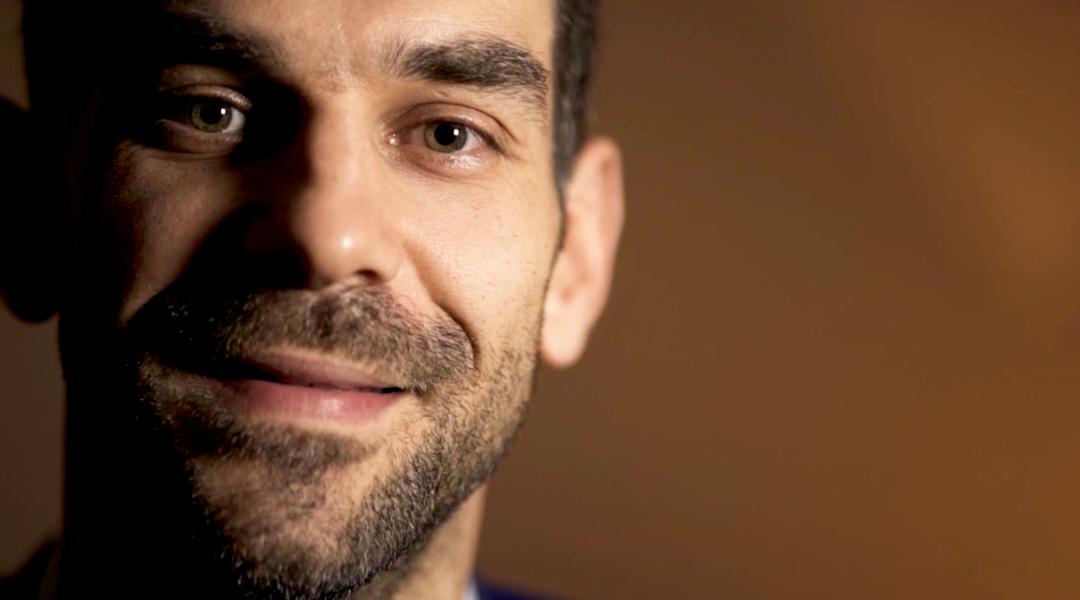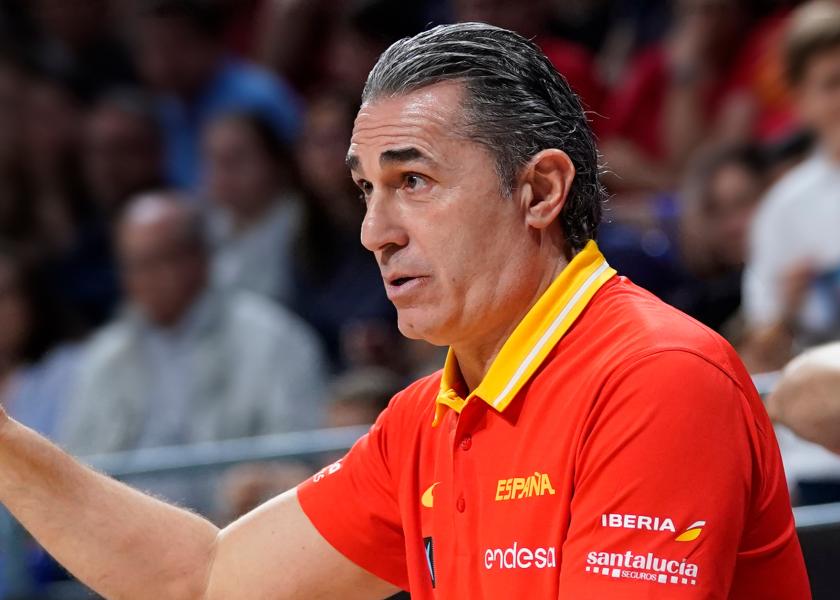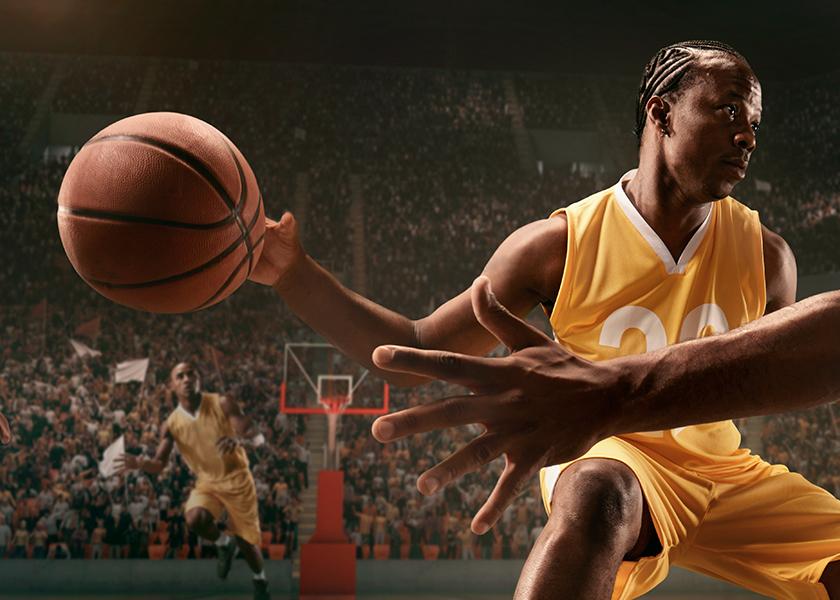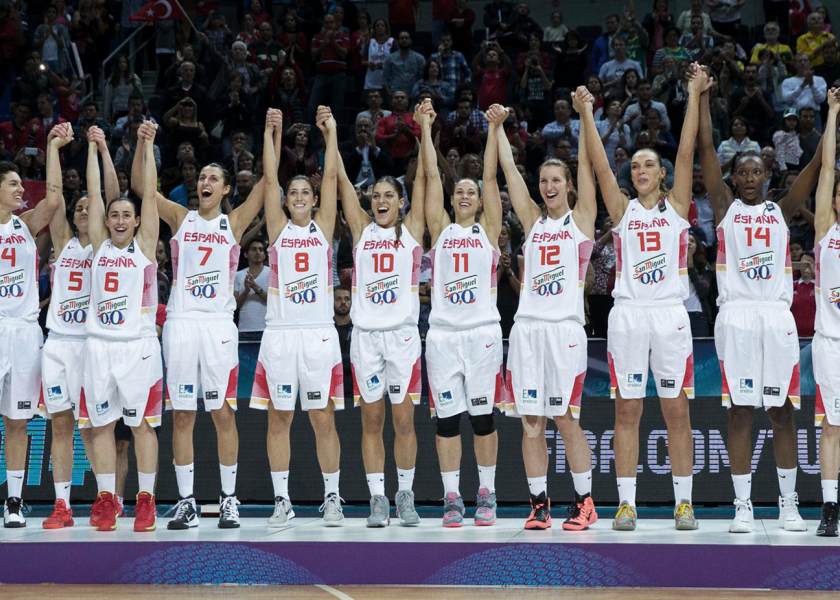José Manuel Calderón
The Extremaduran Who Conquered the NBA

To live among and compete against the stars of the NBA is something only a few can aspire to. José Manuel Calderón is one of the Spanish talents who wrote the golden pages of Spanish basketball history and earned their spurs in the best league in the world.
Working from his New York office as an intermediary between the players and the NBA, José Manuel Calderón (Badajoz, 1981) still has close ties to the most prestigious basketball competition on the globe, where he earned great respect during his years as a player. A respect he, his friend Pau Gasol, and other Spanish basketball luminaries like Garbajosa and Marc Gasol, among others, won by winning the 2006 World Cup, and three Olympic medals. “I don’t miss competing as much as I thought I would,” he says. “I have other challenges now.”
Last October, Calderón announced the end of a career full of individual and collective accomplishments. He became an idol in Canada, where he achieved an NBA record-breaking 98.1 free-throw percentage during one season, also being the third player with the most games for the Toronto Raptors, and holding, until very recently, the record for most assists in the history of that same side. He was also the first Spanish player to ever play a playoff game, and playing a fundamental role in it, too. However, the Extremaduran is the kind of player who always puts the team in front of any individual success. “Some days it was the assists, others it was the layups, or three three-pointers. I believe the team should always come first.”
“Some days it was the assists, others it was the layups, or three three-pointers. I believe the team should always come first.”
His intelligence to organise the game has also been one of the deadliest weapons of the best Spanish basketball generation ever. “There have been many special moments with the National Team. Making my debut was amazing for me—to be able to represent Spain for the first time,” he recalls. “The first march at the Olympic Games, walking behind the flag, …” The fact is that he has won practically everything with the Spain Men’s National Basketball Team: the World Cup in Japan in 2006; the 2011 EuroBasket; silver at the 2008 Olympics in Beijing and London 2012, as well as at the 2003 and 2007 EuroBaskets, in Sweden and Spain, respectively; and the third place at the 2016 Olympic Games in Rio and the 2013 EuroBasket in Slovenia. “What we have done is amazing. And, as time moves on, we’ll come to realise even more just how much we’ve achieved.”
Spanish basketball team's chances in Tokyo Olympics
Precisely this summer, some of the players who used to be his teammates in the National Team, and who won last September’s World Cup in China, will try to win Spain’s first ever Olympic gold medal. Calderón is optimistic: “We have a great team, and everybody knows his role. Now, we just have to play. We’ve already proven that we’re very strong, mentally,” However, the Gasol brothers and their teammates (“Let’s hope Pau won’t retire until after the Olympic Games in Tokyo,” he says about one of his brothers in arms) are not the only weapons Spanish basketball will bring to the capital of Japan. The Women’s National Basketball Team are also a clear candidate for an Olympic medal, based on their most recent accomplishments, such as last year’s recovered European title. “What the girls are doing is truly amazing; they’ve been winning medals for many consecutive years now.”
“We have a great team, and everybody knows his role. Now, we just have to play. We’ve already proven that we’re very strong, mentally”
Back to Spain
Apart from the National Team, we’ve only been able to see Calderón at work in the Spanish league for six seasons. He moved to Toronto in 2005, where he spent eight years, and after that, several transfers led him to different places all over the USA: from Detroit to Dallas and New York, via Chicago, Los Angeles, Atlanta, and Cleveland. However, even though he ruled out coming back to the ACB and ending his career here, Calderón does think about returning to his homeland at some point. “I quit basketball because I really wanted to spend more time with my family,” he admits. “I would like to go back to Spain, to be with my people, and live peacefully—just enjoying life without thinking that tomorrow I have to go back to training.”


